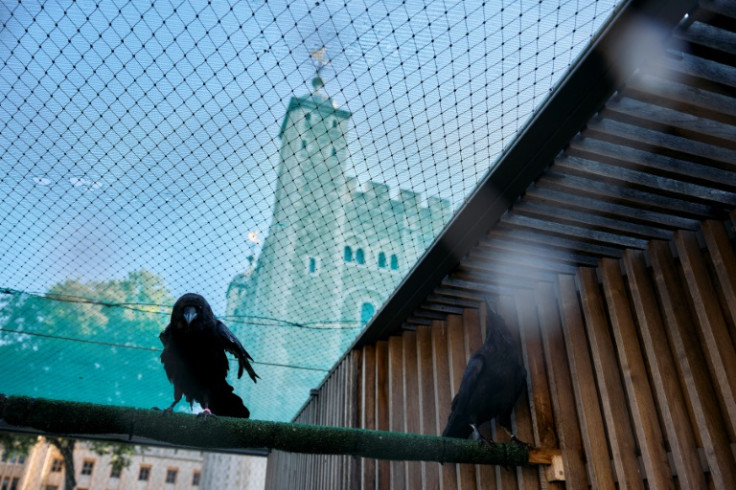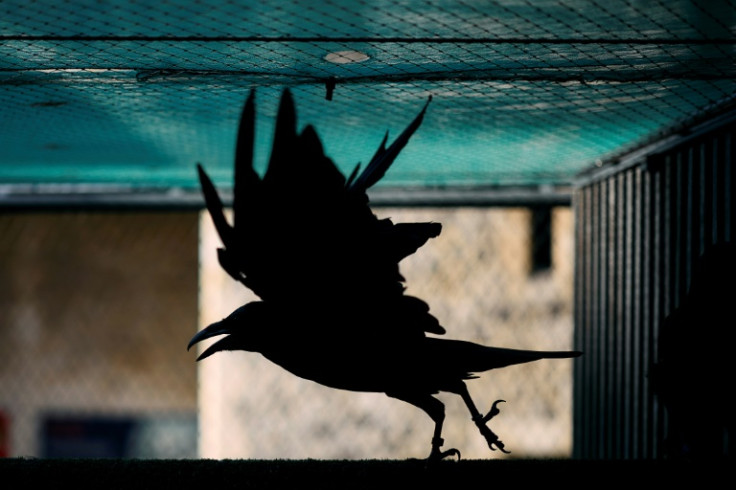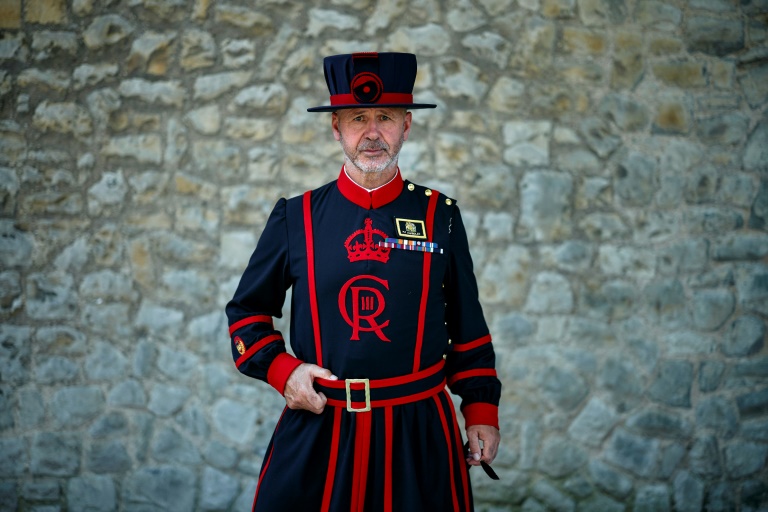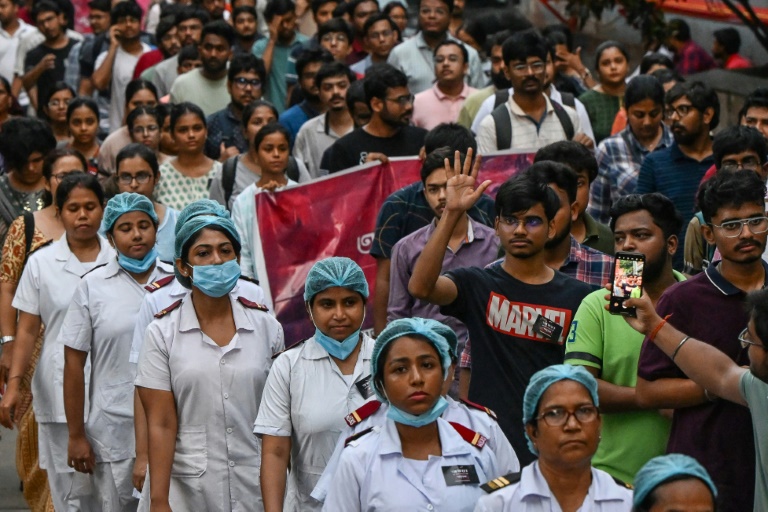As a marine commando, Michael Chandler knew all about daunting missions, but in his new role of Ravenmaster at the Tower of London, legend would have it that the survival of the United Kingdom now rests in his hands.
King Charles II, who reigned from 1660 to 1685, is thought to have been the first to insist on the protection of the ravens at the legendary 900-year-old Tower.
That followed the monarch learning of an ancient prophecy stating that if the ravens ever left the fortress, it would collapse, dooming the kingdom too.
Since then, members of the Yeomen Warders — the ceremonial guards responsible for securing the tower, in particular the Crown Jewels — have taken care of the birds.
The warders, commonly known as Beefeaters and led by a “Ravenmaster” since the late 1960s, must ensure that at least six birds live in the tower at all times, according to the rules laid down by Charles II.
Michael “Barney” Chandler, 57, is only the sixth person to take on this solemn role, starting back in March.
Dressed in his black and red uniform and identifiable by his round flat-brimmed hat, Chandler commands a four-person team responsible for feeding, caring for and monitoring the ravens.
Chandler, who served in Iraq and Afghanistan when in the Royal Marines, had no particular interest in birds before arriving at the Tower of London 14 years ago.
“Initially, the draw was the legend of the ravens and then being here seeing them, working amongst them… it was just natural,” Chandler said of his career progression.
“I fell in love with the ravens,” he added, praising their intelligence.
“They’re individuals, they are characters, just like us,” he said.
There are seven ravens currently inhabiting the old prison and royal fortress, one more than the number needed to avert disaster, Chandler explained.
Two of the birds, Edgar and Harris, were in no hurry to eat their breakfast of two dead chicks, which Chandler fed to them through the bars of their enclosure, when AFP visited the tower recently.
Their companions — Poppy, Rex (the latest arrival named in honour of King Charles III), Georgie and Jubilee — were already outside, wandering among the tourists, which number around three million each year.
And there is Branwen, the seventh, who has refused for several years to sleep with the rest of the flock.
“They’re territorial birds. So even if we let them out during the day, they don’t go anywhere,” he explained.
Even so, several of their feathers are shortened on one wing to prevent them from flying too high.
The life expectancy of ravens in the tower is around 20 years, compared with between 10 and 15 in the wild. The oldest raven in the tower lived for 44 years.
The mischievous and sociable birds sometimes scare tourists who do not expect to see them up so close, perched on a staircase or a railing.
“I’ve seen a raven poking his nose through a carrier bag to steal a cheese straw from a school kids packed lunch,” recalled Chandler.
“They are serving His Majesty as much as we in the (king’s) bodyguard do,” he said, assuring that the current King Charles “does check up on them regularly, as did his mother”.
Another momentous duty that the former soldier undertook with fellow warders was to protect the coffin of Queen Elizabeth II at Westminster Abbey following her death in September 2022.
“It was the proudest moment of my life,” said the father-of-four, “but you shouldn’t tell my wife that!”
AFP

AFP

AFP







